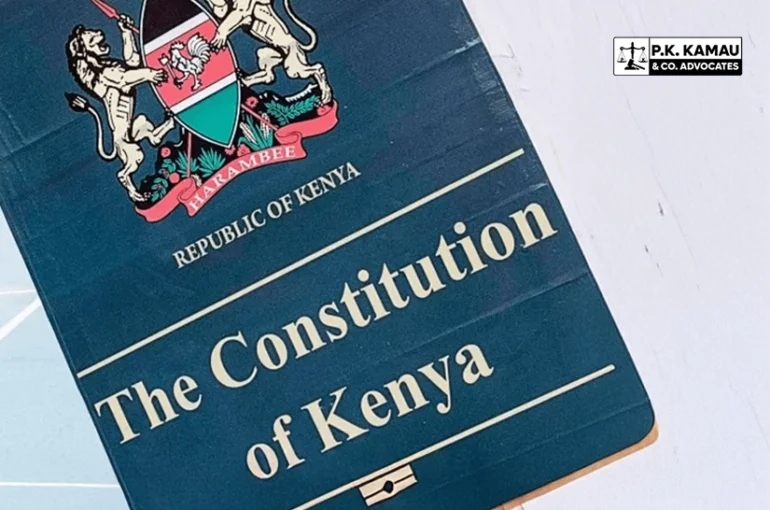The Evolution of Constitutional Law in Kenya: A Journey from Independence to the Present
The development of Kenya’s constitutional law is a record of the country’s progress and change in the annals of legal history. The trajectory of constitutional progress from the time of independence to the present represents the goals, challenges, and victories of the Kenyan people. In this article, we delve into the pivotal moments that have shaped Kenya’s constitutional landscape, highlighting the significance of each phase and the contributions of key legal minds, such as PK Kamau and Co. Advocates, in this remarkable journey.
Independence and the Birth of a Nation:
Kenya’s history underwent a sea change in 1963 when it was freed from British colonial rule. The requirement for a constitution to act as the cornerstone of the country’s government arose with the acquisition of sovereignty. The Lancaster House Conference paved the way for the first constitution, granting Kenya a parliamentary system of government. This early constitutional framework set the stage for the legal evolution that would unfold in the subsequent decades.
The Post-Independence Amendments:
In the years following independence, Kenya experienced constitutional amendments that reflected the evolving socio-political landscape. Notable changes included the shift to a presidential system of government in 1964 and the entrenchment of a Bill of Rights in 1977. These amendments aimed to address emerging challenges and ensure that Kenya’s legal framework evolved to safeguard the rights and interests of its citizens.
The Winds of Change: The 1990s and the Struggle for Democracy:
The 1990s witnessed a seismic shift in Kenya’s constitutional journey as demands for greater democratic space intensified. As the demand for constitutional change grew, Section 2A was repealed in 1991, bringing multi-party politics back. Nevertheless, there were many obstacles in the way of the attempts to draft a new constitution, which led to a drawn-out procedure that continued until the early 2000s.
The 2010 Constitution: A New Dawn for Kenya:
The adoption of the new constitution on August 27, 2010, marked a significant turning point in Kenya’s constitutional development. This revolutionary charter introduced an independent court, a decentralized administration, and an enlarged Bill of Rights, all of which represented a break from the past. A collaborative effort was made to rectify past injustices, encourage inclusivity, and create a framework for responsible government in the 2010 Constitution.
PK Kamau and Co. Advocates: Navigating the Legal Landscape:
Throughout Kenya’s constitutional evolution, legal practitioners played a crucial role in shaping the nation’s legal framework. PK Kamau and Co. Advocates stand out as a stalwart in the legal arena, contributing expertise and commitment to the development of constitutional law. Their role in advising on legal matters, advocating for justice, and navigating the complexities of constitutional litigation has been instrumental in fostering a robust legal environment in Kenya.
The Benefits of Constitutional Evolution:
The evolution of constitutional law in Kenya is not merely a historical narrative; it has tangible benefits for the citizens. A progressive constitution provides a stable legal foundation, protects individual rights, and ensures accountability in governance. The devolved system of government, a hallmark of the 2010 Constitution, has empowered local communities, fostering inclusivity and participatory democracy.
Conclusion:
As Kenya continues on its journey of growth and development, the evolution of constitutional law remains a dynamic and ongoing process. From the early days of independence to the present, each chapter in this journey has contributed to the nation’s legal identity. PK Kamau and Co. Advocates, among others, have played an integral role in shaping Kenya’s legal landscape, underscoring the importance of legal expertise in the pursuit of justice and constitutional integrity.


Leave a Reply